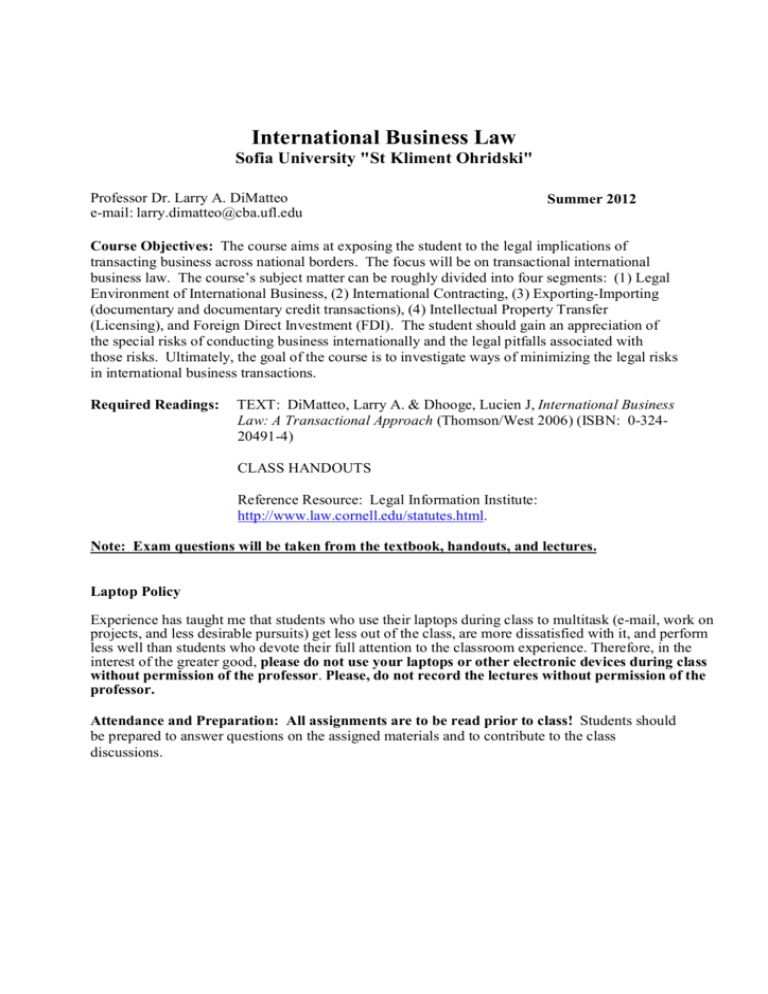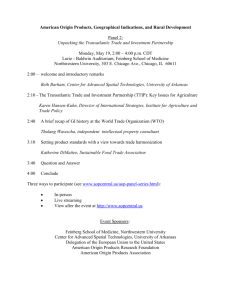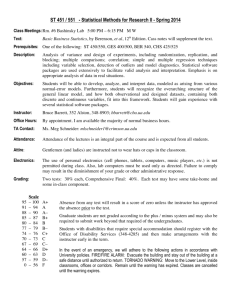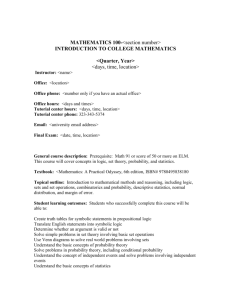International Business Law
advertisement

International Business Law Sofia University "St Kliment Ohridski" Professor Dr. Larry A. DiMatteo e-mail: larry.dimatteo@cba.ufl.edu Summer 2012 Course Objectives: The course aims at exposing the student to the legal implications of transacting business across national borders. The focus will be on transactional international business law. The course’s subject matter can be roughly divided into four segments: (1) Legal Environment of International Business, (2) International Contracting, (3) Exporting-Importing (documentary and documentary credit transactions), (4) Intellectual Property Transfer (Licensing), and Foreign Direct Investment (FDI). The student should gain an appreciation of the special risks of conducting business internationally and the legal pitfalls associated with those risks. Ultimately, the goal of the course is to investigate ways of minimizing the legal risks in international business transactions. Required Readings: TEXT: DiMatteo, Larry A. & Dhooge, Lucien J, International Business Law: A Transactional Approach (Thomson/West 2006) (ISBN: 0-32420491-4) CLASS HANDOUTS Reference Resource: Legal Information Institute: http://www.law.cornell.edu/statutes.html. Note: Exam questions will be taken from the textbook, handouts, and lectures. Laptop Policy Experience has taught me that students who use their laptops during class to multitask (e-mail, work on projects, and less desirable pursuits) get less out of the class, are more dissatisfied with it, and perform less well than students who devote their full attention to the classroom experience. Therefore, in the interest of the greater good, please do not use your laptops or other electronic devices during class without permission of the professor. Please, do not record the lectures without permission of the professor. Attendance and Preparation: All assignments are to be read prior to class! Students should be prepared to answer questions on the assigned materials and to contribute to the class discussions. Grades: Grades will be based upon the following: A. Final (total 80%): B. Participation (20%) Voluntary student participation is encouraged. Depending on the size of the class, each student may be assigned a case or issue to be discussed in class with the professor. C. Extra Credit Problems: Depending on the size of the class, a student may earn up to 5 points on his or her final score by doing an extra credit assignment. A student, at his or her election, may write a 3-4 page paper (12 font), double-spaced, with no more than 1-inch margins) answering a problem provided by the professor. Honesty Policy: A student’s work is to be solely his or her work product. Any sources used should be appropriately quoted and cited. A Note on the Instructor Dr. DiMatteo is the Huber Hurst Professor of Legal Studies in the Graduate School of Business at the Warrington College of Business Administration at the University of Florida. He teaches courses in the legal environment of business, commercial law, law for entrepreneurs, and the law of international business transactions. Dr. DiMatteo is a graduate of the Cornell and Harvard Law Schools. He earned a PhD from Monash University (Australia) in Business and Commercial Law. Dr. DiMatteo is the author of numerous articles and eight books including The Challenge of International Sales Law (editor) (Cambridge University Press, forthcoming), International Contracting Law (3 rd edition, Kluwer Law International, 2112), and International Business Law (Thomson Learning 2006). Schedule of Assignments Introduction: Syllabus; Text; Supplement; Course Coverage; Introduction The Risks of International Business (Chapter 1) Ethics of International Business (pp. 49-58) Strategies for International Business (85-87 & 99-102) International Dispute Resolution (Chapter 4) International Contract & Sales Law (Chapters 7 & 8) Documentary Transactions & International Trade Finance (Letters of Credit) (Chapters 9 & 11) Intellectual Property Protection & Intellectual Property Licensing (Chapters 13 & 14) 2 Student Performance and Accountability Statement Overview Fostering excellence requires not only an intellectually challenging curriculum but also an environment of professionalism in all aspects of the program. Academic Integrity Academic integrity and honesty are essential in the development of a professional. Society is not willing to tolerate dishonest or otherwise unethical professionals. Students must never appropriate the ideas and work of others, including both academic sources and fellow students, without appropriate attribution. They must exercise complete honesty in following the conditions established by the instructor for examinations and other assignments. Respect A professional and high performance culture requires respect for the learning process, for human dignity, for the ideas and the work of others in the university community, and respect for the significant human and financial resources that are invested in professional education from many sources. Students must devote the necessary time, attention, and best efforts to their education, consistent with the demands of each program. Procedures To ensure that students maximize the value of their educational experience, expectations are outlined below: Attendance With few exceptions, students must treat class attendance as an academic appointment that must be met, much as one must meet a business appointment. Students are expected to attend scheduled class sessions. Classroom Expectations Students are expected to be punctual in class attendance and remain in the classroom for the entire class session, as they would in any business appointment, unless an urgent need arises or prior arrangements have been made with the instructor. Students are expected to arrive for class prepared to meet classroom obligations and to devote full attention and commitment to the work of that class. Emailing, texting, accessing the internet, and working on matters unrelated to the work at hand are inappropriate behaviors because they are disrespectful and distracting to the class and to the instructor. 3 Classroom discussion is an important part of the pedagogy of any course. Students should be fully prepared to engage in class discussion, and they should use the opportunity to develop positive and professional communication skills. This includes according respect for differing perspectives and contributions to discussion, as well as building on the base for discussion laid by student colleagues and the instructor. It is believed that these principles, in conjunction with our high expectations, will result in a stimulating and productive experience for students and for the instructor. 4







